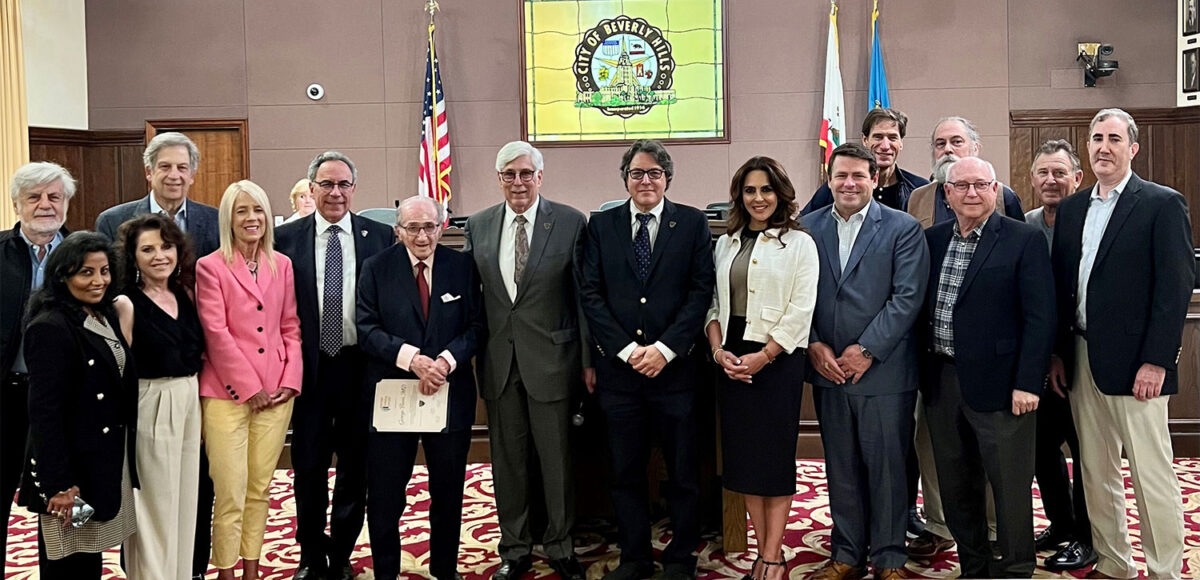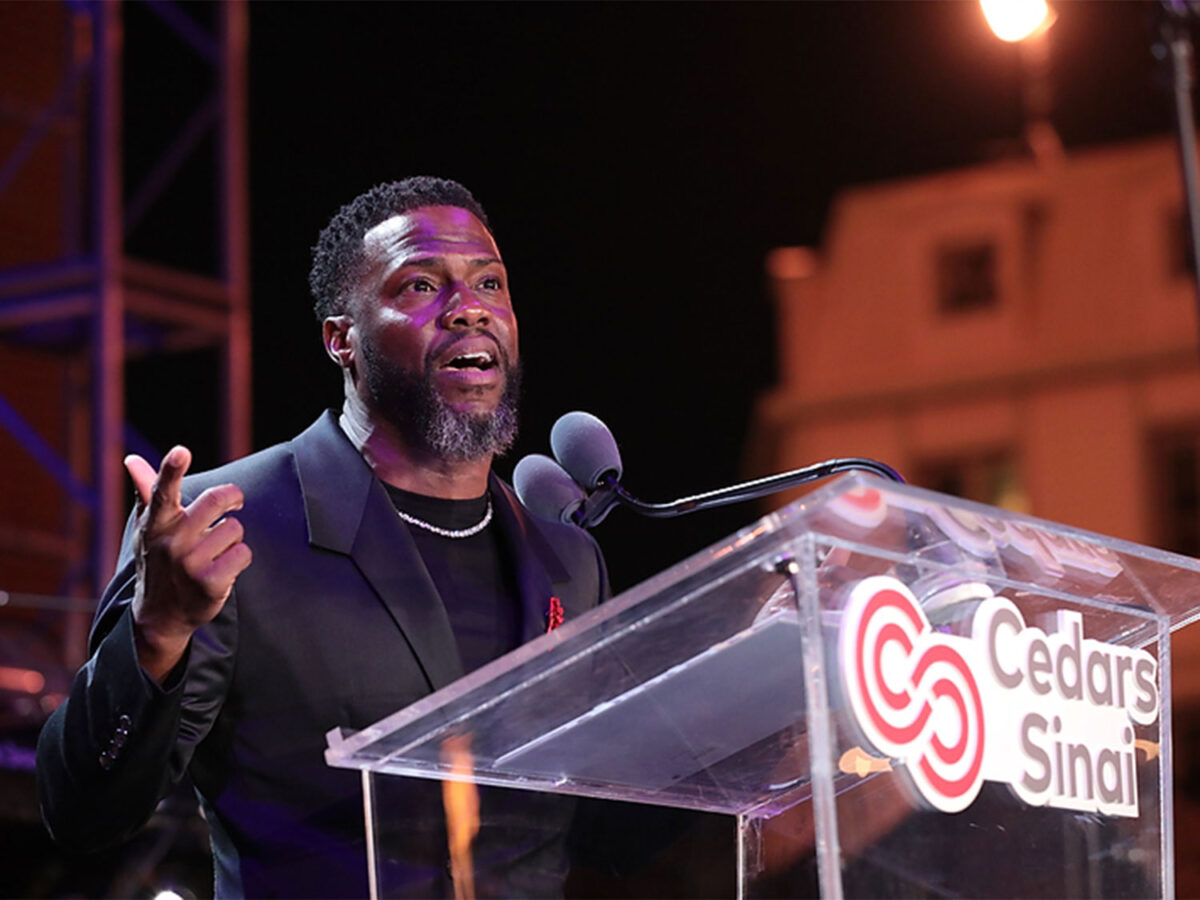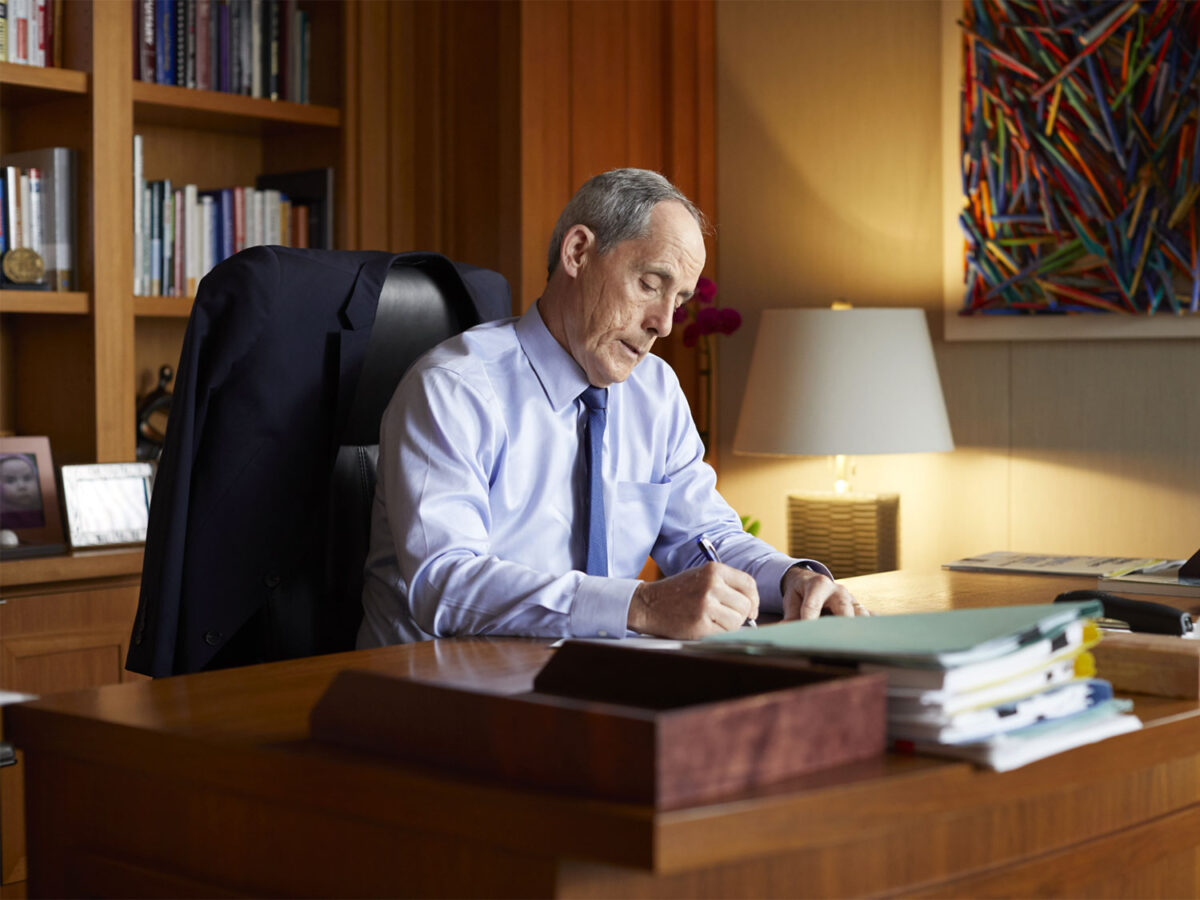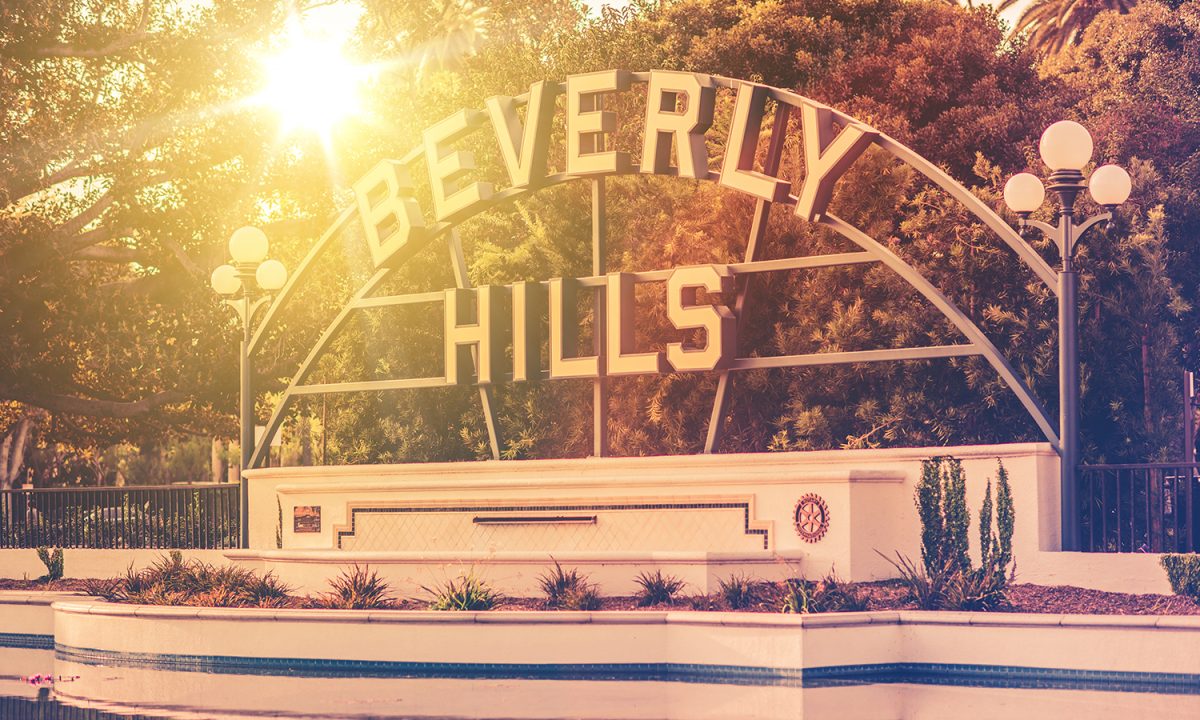Beverly Hills Mayor Dr. Julian Gold kicked off the Beverly Hills City Council regular meeting on June 27 with his “People Helping People” award. Gold created the honor when he was installed several months ago, as a way to highlight “people in the community who make a difference,” said the Beverly Hills mayor.
Tuesday night’s honoree was 102-year-old George Berci, M.D., who forged ahead after surviving the horrors of the Holocaust and losing many family members.
Instead of giving in to despair, Berci dedicated his life to treating patients, training doctors, and creating endoscopic and laparoscopic techniques that provide the basis of most of the minimally invasive surgeries that are performed today.
“Dr. Berci has experienced more and accomplished more in his life than most of us will ever know,” said Gold about the doctor who was born in Hungary in 1921 who escaped the Nazis before ending up on the faculty of Cedars-Sinai.
Before Berci’s innovations, which provide the basis for today’s standard of care, gall bladder surgery required major surgeries that left long scars and required two weeks of recovery, if patients were lucky, Gold explained.
Acknowledging the substantial crowd in the audience who had come to support Berci, Gold noted, “You are surrounded by your friends here, many of whom you have worked with at Cedars-Sinai, many whom you’ve co-authored with, and investigated with,” said Gold.
He continued, “Dr. Berci is responsible for gall bladder surgeries today that only require four little holes, and patients now go home the same day.”
Berci looked down humbly as Gold spoke. When it was time for Berci to speak, he recounted surviving not one, but two “catastrophes.”
The first catastrophe, the doctor remembered, took place in 1942, when he was in Budapest, and “Hitler sent Nazis to gather 6 million Jews to bring them to Auschwitz,” a death camp that was one of many that tragically succeeded in murdering 6 million Jews.
“At the same time, the Nazis organized a new Jewish young army center, where we, who were 20 to 26 years old, with guards, were sent to Romania to help build a German defending system in case the Russians came in,” Berci remembered. “It was extremely difficult in the time there, but I survived, and I escaped two years later, and ended up back in Budapest, where I found a ghetto of 150,000 Jews.
“The Russians were already around the country, but we had the Hungarian S.S. in the area.”
By getting some Swiss paperwork, Berci was able to observe on a daily basis, for a couple of months, the Hungarian S.S. took approximately 500 Jews to the Danube River and machine-gunned them down.
World War II thankfully ended in 1945, but 11 years later, when Soviet tanks rolled into Budapest, Berci sadly experienced his second catastrophe.
“After being in a Russian-organized country, it took me some time to find out that there is not a heck of a difference between Hitler and Stalin,” Berci said. “Behind the Parliament, 100,000 gangsters started to yell, without knowing that the secret police had machine guns around them and had started to shoot.”
By this time, Berci had already earned his medical degree at the University of Szeged, and he was beginning to practice medicine as a young resident in a hospital.
“Within hours, we were trying to treat bleeding, yelling, and dying people by the hundreds,” Berci remembered. “We started to operate and within a couple of hours, we ran out of water, medication, and other supplies.
“With this background, I saw how people can die when we cannot help. This was a tremendously difficult period. Two days later, Russian tanks had rolled in by the dozen and had started to shoot in Budapest, where hundreds, thousands of people were killed.” While continuing to treat patients, Berci established the first experimental surgery program in Europe, before winning a Rockefeller Fellowship in Australia, where he practiced until 1967 when he was invited to serve as a visiting fellow at Cedars-Sinai Hospital.
Now an esteemed and beloved professor emeritus, Berci has served on Cedars’ faculty since 1970.
After recounting the two tragic catastrophes that Berci sadly experienced in his life, the esteemed doctor emphasized the duties of Beverly Hills residents “to improve the situation of the rising antisemitism in this country.
“We have to really improve the education of the younger generation,” he said before thanking Gold, who then presented the inspiring doctor with a “People Helping People” certificate that honored “his lifetime of remarkable accomplishments of advancing the science of medicine and for his remarkable dedication for helping patients around the world.”







